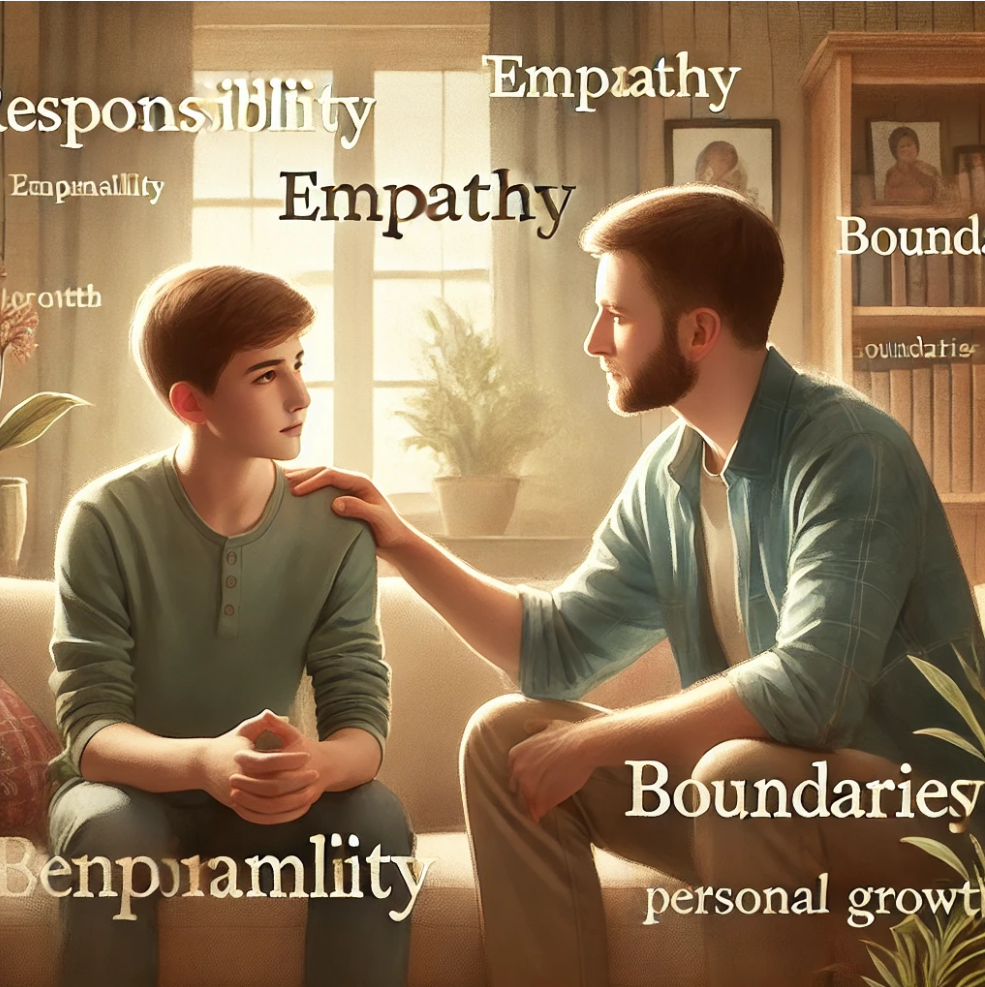I Can’t stand being told “No”: How to Accept “No” as an Answer from Your Parents

Hearing “no” from your parents can be frustrating, especially when you feel like their decision is unfair or unnecessary. However, learning how to accept “no” as an answer is an important life skill that helps build self-control, patience, and resilience. Understanding why parents say “no” and developing strategies to handle it maturely can improve your relationship with them and help you navigate life’s challenges more effectively.
Why Do Parents Say “No”?
Your parents’ job is to guide and protect you, which means they sometimes have to set limits. Research shows that parental boundaries help teens develop better decision-making skills and prevent impulsive behaviors (Baumrind, 1991). Some common reasons parents say “no” include:
- Safety Concerns – They want to protect you from harm.
- Financial Reasons – Some requests may be too expensive.
- Time Management – They may want you to focus on school, sleep, or family time.
- Moral or Ethical Concerns – They may be trying to instill values in you.
While it might feel unfair in the moment, their decisions are often made with your best interests in mind.
How to Accept “No” Without Getting Upset
1. Take a Deep Breath and Stay Calm
Reacting with anger or frustration can escalate the situation. Instead, take a moment to breathe and collect your thoughts. Studies on emotional regulation suggest that deep breathing can help reduce stress and improve self-control (Gross, 1998).
2. Listen to Their Explanation
Rather than immediately arguing, listen to your parents’ reasoning. Even if you disagree, understanding their perspective shows maturity and respect. Research on family communication highlights that active listening improves relationships and problem-solving (Smetana, 2011).
3. Ask Questions Respectfully
If you don’t understand why they said no, ask calmly:
- “Can you help me understand why this isn’t a good idea?”
- “Is there a way I can prove I’m responsible enough?”
This approach shows that you respect their decision while seeking clarity.
4. Accept Their Decision Without Arguing
Sometimes, your parents’ answer won’t change no matter what. Instead of continuing to argue, acknowledge their response and move on. Constant arguing can lead to unnecessary conflict and resentment (Grusec & Goodnow, 1994).
5. Find an Alternative or Compromise
If their decision affects something important to you, try proposing a compromise. For example:
- If they say no to going out late, suggest coming home earlier.
- If they say no to buying something expensive, offer to contribute your own money.
Finding a middle ground can show your responsibility and willingness to cooperate.
6. Remember That “No” is Not Personal
It’s easy to feel like a “no” means your parents don’t trust or care about you, but that’s not the case. Their decisions are often based on experience and concern for your well-being. Studies show that teens who perceive parental rules as caring rather than controlling develop healthier independence (Deci & Ryan, 1985).
7. Focus on the Bigger Picture
In the moment, getting a “no” may feel like the end of the world, but ask yourself:
- Will this still matter a week from now?
- Is this decision really unfair, or just disappointing?
Practicing perspective-taking helps you handle setbacks in a more balanced way (Hoffman, 2000).
Accepting “no” as an answer from your parents is tough, but it’s a valuable skill that will benefit you throughout life. Learning to stay calm, listen, and respond respectfully helps build stronger relationships, develop patience, and prove your maturity. Even when you don’t agree with their decision, handling it well can lead to more trust and independence in the future.

This article has been written by John S. Collier, MSW, LCSW-S. Mr. Collier has over 25 years of experience in the Socia Work field. He currently serves as the Executive Director of Southeast Kentucky Behavioral Health, LLC based out of London Kentucky. He may be reached at (606) 657-0532 or by email at john@sekybh.com.
References
- Baumrind, D. (1991). The influence of parenting style on adolescent competence and substance use. Journal of Early Adolescence, 11(1), 56-95.
- Deci, E. L., & Ryan, R. M. (1985). Intrinsic motivation and self-determination in human behavior. Springer.
- Gross, J. J. (1998). The emerging field of emotion regulation: An integrative review. Review of General Psychology, 2(3), 271-299.
- Grusec, J. E., & Goodnow, J. J. (1994). Impact of parental discipline methods on the child’s internalization of values. Developmental Psychology, 30(1), 4-19.
- Hoffman, M. L. (2000). Empathy and moral development: Implications for caring and justice. Cambridge University Press.
- Smetana, J. G. (2011). Adolescents, families, and social development: How teens construct their worlds. Wiley.





